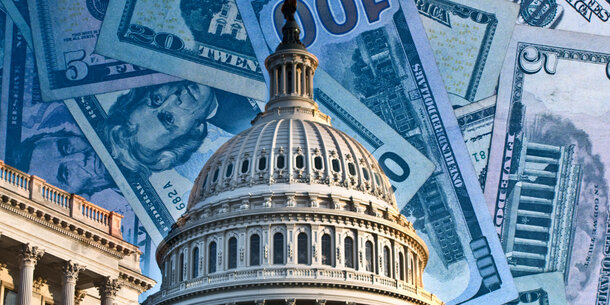Brett Kavanaugh, President Trump’s nominee for the open seat on the Supreme Court, is going to be asked a lot of questions in the near future. One important line of questioning will be whether he believes that the Constitution blocks America’s elected leaders from protecting our democracy from foreign attacks. An opinion he wrote in a 2011 case gives cause to wonder.
The issue is far from academic. Russia boldly attempted to influence the outcome of the 2016 presidential election with, among other things, ad buys on popular websites like Facebook and Google. Intelligence officials warn that they’ll be back for the midterms and in 2020. Other countries may be inspired by the Kremlin’s example.
Besides holding hearings, Congress has done nothing to address this threat. Some states have shown leadership by increasing transparency for election ads online, which is necessary to deter foreign meddling and helps law enforcement catch foreign trolls. Maryland, New York, and Washington have all beefed up their regulation of online political ads, and a bill is moving through the California Legislature.
The courts’ role in national efforts to protect American elections from foreign spending has been somewhat complicated. On the one hand, courts have upheld the ban on foreigners spending to influence elections and the disclosure requirements that help enforce it. On the other hand, the Supreme Court’s deregulatory decisions have opened the door to spending by “dark money” groups that don’t reveal their donors — giving foreign powers a place to hide potentially unlimited spending.
The issue has been lurking for years. Just days after the Supreme Court decided Citizens United, President Obama predicted the opinion would “open the floodgates for special interests — including foreign corporations — to spend without limit in our elections.” The remark famously prompted Justice Samuel Alito to mouth “not true.” Yet foreign money has turned up in some dark money groups’ coffers, and the FBI is currently investigating whether the National Rifle Association’s dark money arm was used by Russians connected to the Kremlin to spend on the last election.
As a judge on the D.C. Circuit Court of Appeals, Kavanaugh has played an important role in these legal developments. In a 2011 case called Bluman v. FEC, he wrote an opinion upholding the ban on foreign spending. Two Canadians challenged the ban on First Amendment grounds, arguing they should be allowed to contribute to state and federal candidates. Kavanaugh wrote that the Supreme Court has consistently allowed foreign citizens to be excluded from the processes of democratic self-government, so it’s permissible for the government to block foreigners from spending to influence American voters.
But in the course of upholding the ban, Kavanaugh signaled he would narrow it. He went out of his way to say that he interprets the ban to apply only to spending on messages that explicitly call for a vote one way or the other, despite the broad language of the statute. That would leave foreigners free to spend on “issue ads” designed to influence the election without explicitly saying so.
Yet the vast majority of the social media ads bought by Russian trolls in 2016 to interfere with the election avoided explicitly telling audiences who to vote for. For example, many ads criticized Hillary Clinton as not trustworthy or a criminal without mentioning the election. Others sought to capitalize on African Americans’ political frustrations to discourage black turnout without mentioning any candidate.
Lawmakers should be able to regulate this type of sham issue ad to protect elections from foreign interference. Senators’ responsibility to provide “advice and consent” on Kavanaugh’s nomination to the Supreme Court requires them to investigate the candidate’s beliefs on the constitutionality of a broad foreign spending ban. They should ask: Does his opinion in Bluman imply that he believes the Constitution prevents the American government from protecting its elections from Russian trolls and their copycats, even if they don’t expressly tell people who to vote for?
(Photo: Thinkstock)

